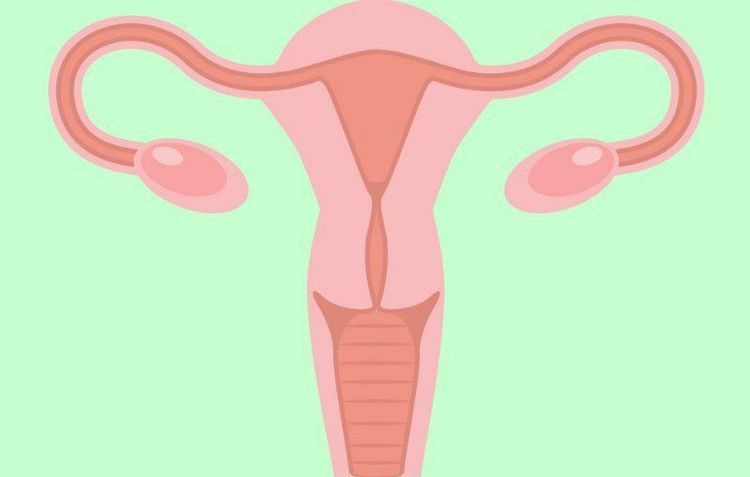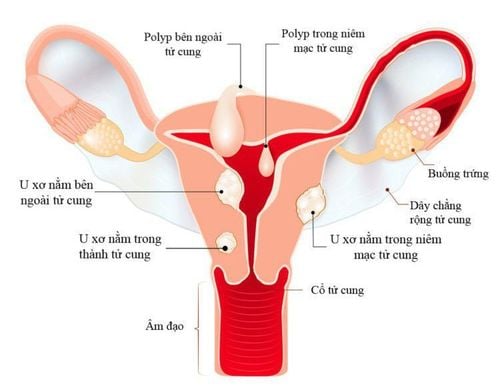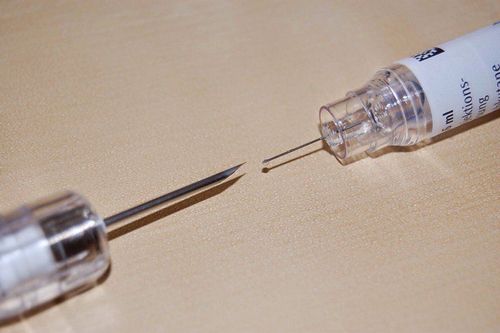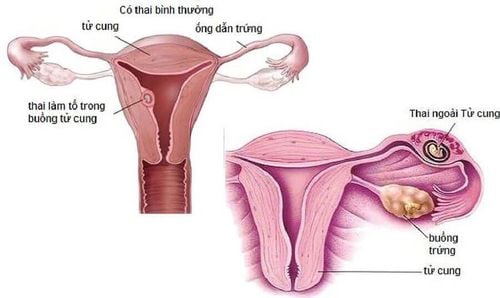This is an automatically translated article.
The article is professionally consulted by Master, Resident Doctor Nguyen Thi Tam - Clinician - Reproductive Support Center - Vinmec Times City International Hospital.Fallopian tube blockage is one of the most common causes of female infertility. This condition prevents the egg and sperm from meeting each other, accounting for about 25-30% of all infertility cases.
1. What is tubal occlusion?
Fallopian tubes are part of the female reproductive system. This is a set of parts to connect the ovary and uterus. Each month, at the time of ovulation, which occurs around the middle of the menstrual cycle, the fallopian tubes carry an egg released from the ovary into the uterus.The process of conception also happens right inside the fallopian tube. If an egg, after being released from the ovary, enters the fallopian tube and is fertilized by sperm, a zygote is formed. The zygote will divide very quickly, continuing to move all the way through the fallopian tube to the uterine cavity to implant.
If for any reason the fallopian tube is blocked, sperm and egg cannot meet to fertilize, the ability to get pregnant will be difficult and even infertile.

2. What causes blocked fallopian tubes?
Fallopian tubes are often blocked by scar tissue or pelvic adhesions. These can be caused by one of the following factors:A history of pelvic inflammatory disease : Some sexually transmitted infections caused by chlamydia and gonorrhea can cause scarring and lead to pelvic inflammatory disease pot. Endometriosis: Endometrial tissue can build up in the fallopian tubes and secrete, causing a blockage. Endometrial tissue on the outside of other organs can also cause adhesions, which indirectly block the fallopian tubes. Previous ectopic pregnancy and gestational sac removal surgery can scar the fallopian tubes. Uterine fibroids: These tumors can block the fallopian tubes, especially where they attach to the uterus. Past abdominal surgery: Past surgeries, especially on the fallopian tubes, can lead to pelvic adhesions blocking the fallopian tubes.

3. What are the symptoms of blocked fallopian tubes?
Blocked fallopian tubes rarely cause any symptoms. Many women are completely unaware that they have a blocked fallopian tube problem until they have tried and failed to get pregnant many times.In very rare cases, a blocked fallopian tube can lead to mild, frequent pain on one side of the abdomen. This is because the fluid that fills the tube into the fallopian tube doesn't drain (tubal fluid retention).
In addition, specific causes of blocked fallopian tubes can cause specific symptoms. For example, endometriosis often causes pain that starts early, is often severe, spreads throughout the pelvis, and is correlated with the menstrual cycle.
4. How does fallopian tube blockage affect fertility?
Blocked fallopian tubes are a common cause of female infertility. For this reason, it is difficult for the sperm and egg to meet in the fallopian tube for fertilization.If both tubes are completely blocked, it is difficult for a woman to get pregnant naturally without any supportive treatment. If the fallopian tubes are partially blocked, even though there is still the possibility of a natural pregnancy, the risk of an ectopic pregnancy is increased.
5. How to diagnose blocked fallopian tubes?
To confirm if one or both fallopian tubes are blocked, your doctor will need to do one of two things:5.1. Hysterosalpingography - Contrast ovaries
The woman was instructed to lie on the table in the gynecological position. A speculum is used to open the vagina, then a catheter is placed to pump the contrast through the cervix into the uterus.If the x-ray is observed to see the drug exiting both fallopian tubes, it is considered normal. On the other hand, if the drug doesn't get out, the fallopian tube may be completely blocked.
However, it should be noted that although a clear fallopian tube is shown, it does not mean that the function of the tube is normal. The inner lining of the fallopian tubes can be severely damaged, not preserving function but not showing on radiographs.
5.2. Endoscopic surgery
A surgical instrument called a laparoscope is inserted into the abdomen through a very small incision below a woman's navel. The surgeon can look through the laparoscope to see if one or both of your fallopian tubes are clear.Besides, with the laparoscope, the doctor can also find other problems that can also affect fertility, such as cord scar tissue or endometriosis.
6. How to treat blocked fallopian tubes?
If the fallopian tubes are blocked by scar tissue or by secretions that cause adhesions, your doctor may be able to release the blockage with laparoscopic surgery. Conversely, if the fallopian tubes are obstructed by excessive adhesions, re-canalization treatment may be difficult to perform.The most common complication of tubal occlusion is still an ectopic pregnancy. The reason is that because the fallopian tubes are still at risk of being partially blocked, the egg can still be fertilized, but the movement of the embryo and the uterus is difficult. Therefore, women who have had tubal surgery should see their doctor as soon as they find out they are pregnant to have an ultrasound to check for an ectopic pregnancy as soon as possible.
In addition, tubal recanalization surgery still carries the same potential risks as any surgery, including infection, creating more sticky scar tissue, damage to surrounding organs, bleeding...
7. What is the possibility of pregnancy after tubal occlusion?
You can still get pregnant after tubal occlusion. Your chances of getting pregnant now will depend on your treatment and the severity of the previous blockage requiring intervention.Fallopian tube blockage is a cause of female infertility. This cause is quite common and needs to be thoroughly resolved before deciding to implement measures to support artificial reproduction.
Please dial HOTLINE for more information or register for an appointment HERE. Download MyVinmec app to make appointments faster and to manage your bookings easily.
Articles refer to sources: healthline.com, medicalnewstoday.com













